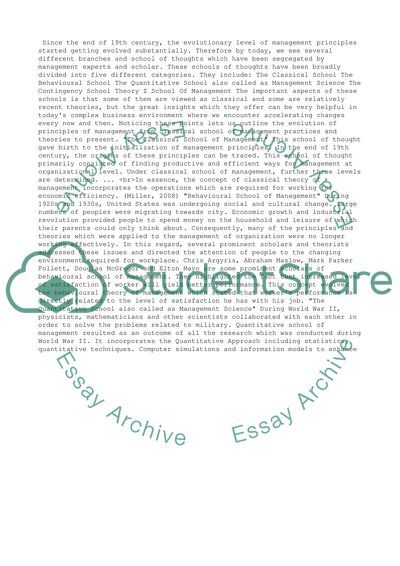Cite this document
(“Evolution of Management Principle Essay Example | Topics and Well Written Essays - 1250 words”, n.d.)
Retrieved from https://studentshare.org/business/1443263-evolution-of-management-principle
Retrieved from https://studentshare.org/business/1443263-evolution-of-management-principle
(Evolution of Management Principle Essay Example | Topics and Well Written Essays - 1250 Words)
https://studentshare.org/business/1443263-evolution-of-management-principle.
https://studentshare.org/business/1443263-evolution-of-management-principle.
“Evolution of Management Principle Essay Example | Topics and Well Written Essays - 1250 Words”, n.d. https://studentshare.org/business/1443263-evolution-of-management-principle.


